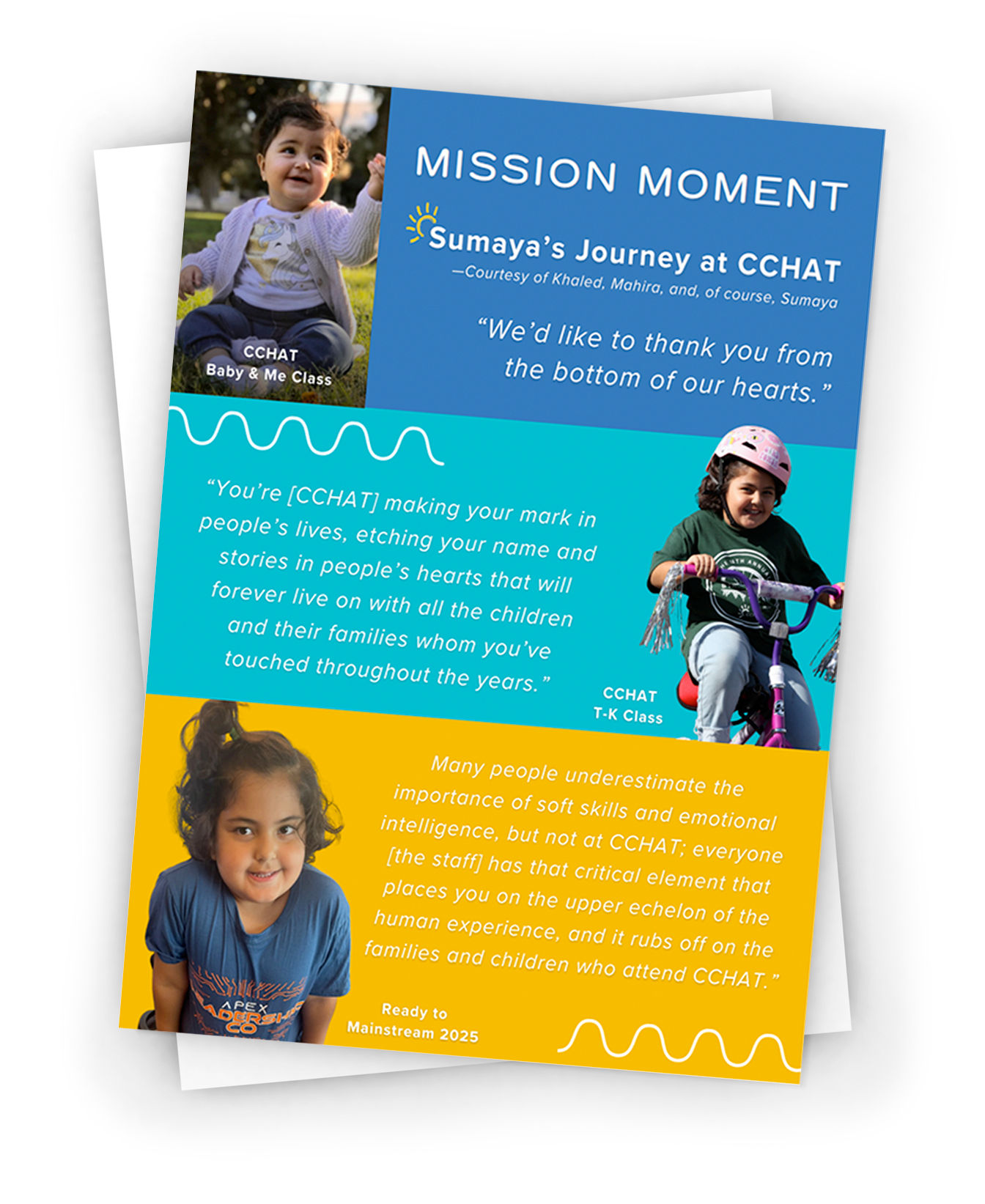The Importance of Early Detection of Mild to Moderate Hearing Loss in Children
.png)
As children develop, they learn through touch, smell, sight, taste and of course, sound. When a child is born deaf or hard of hearing, they learn differently from children who are born with typical hearing.
We recently talked about why the 1, 3, 6 criteria is essential for children born deaf and hard of hearing; these criteria should also come into play even if a child has mild to moderate hearing loss.
Previously, it was thought that only profound hearing loss or complete deafness affected a child’s development. Recent research, however, shows that even mild to moderate hearing loss in children can affect how they learn and process sounds during adolescence.
What is the Impact of Mild to Moderate Hearing Loss in Children?
Mild to moderate hearing loss can affect a child just as much as profound hearing loss if it isn’t detected and treated. Unlike children who have profound hearing loss, mild to moderate hearing loss can go unnoticed for years.
Without special education services such as those offered by the CCHAT Center, many children may:
- Achieve less academically than their typical-hearing peers
- Be more likely to to repeat a grade
- Feel more stressed when it comes to school as they find it difficult to hear in certain situations
- Develop low self-esteem issues
Hearing loss, whether it’s mild, moderate, or profound, can significantly impact a child’s life. This is why it’s vital for children who have any level of hearing loss to get the support they need.
Why is Early Detection of Mild to Moderate Hearing Loss Important?
With early detection, the CCHAT Center can help children better manage their hearing loss by developing skills comparable to their hearing peers. This builds confidence and helps them tackle challenging situations as they mainstream into their neighborhood schools.
With very mild or moderate hearing loss, children may still find some hearing situations difficult, such as:
1. Hearing in Background Noise
Children who have high-frequency hearing loss (cannot hear high-pitched sounds) may have difficulties understanding speech in background noise.
This means they may find it difficult to hear people speaking from a distance, which is common in classroom situations.
2. Distinguishing Certain Word Sounds
A child with high-frequency hearing loss might also find it challenging to understand consonant sounds. These sounds usually relate to tense, plurality, and possessives, and can often be hard to register for children with this type of hearing loss—especially if there is background noise. In this case, the child may have difficulty developing language skills as they struggle to fill in the missing pieces of the consonant sounds.
3. Listening at the End of the Day
A child with mild to moderate hearing loss may also experience more fatigue throughout the day as they have to put extra effort into listening. Your child might need time to rest after school before they begin assignments or other activities that involve more listening.
How Can You Tell if Your Child Has Hearing Loss?
Signs you can look for when interacting with your child include instances where they:
- Have a hard time understanding what you’re saying
- Speak differently compared to their peers
- Don’t reply when you call them
- Misunderstand what you’re saying
- Turn the volume on the TV or tablet up very high
- Have problems in school
- Have problems articulating things
- Imitate actions by watching
- Complain about ear pain or noises in their ears
- Can’t understand conversations on the phone or they switch ears while on the phone
- Pay close attention to the speaker’s face
How Can You Help a Child With Mild to Moderate Hearing Loss?
If your child has mild to moderate hearing loss, here are a few ways that you can help your child in addition to what their audiologist has recommended:
- Before giving your child instructions, make sure you have their full attention. If they’re not facing you when you’re speaking, they might not understand what you’re saying to them.
- When calling your child from a different room, be sure to let them know where you are so they can find you and have the conversation in the same room.
- If possible, get rid of any background noise when having a conversation.
- Have your child wear earplugs during loud situations. For example, when power tools are being used.
- Encourage your child to ask for clarification if they didn’t understand what was being said.
- Make sure your child’s school and teacher are aware of their hearing loss so they can accommodate their needs.
Additionally, you will want to get your child’s hearing tested regularly. Their audiologist will be able to help you figure out how often they should be tested.
At the CCHAT Center, our goal is for children with all levels of hearing loss to get the help they need to succeed in life. If you have any questions about your child, contact us by calling (916) 361-7290 or send us a message on our contact page.





%20(1).png)








































.png)





